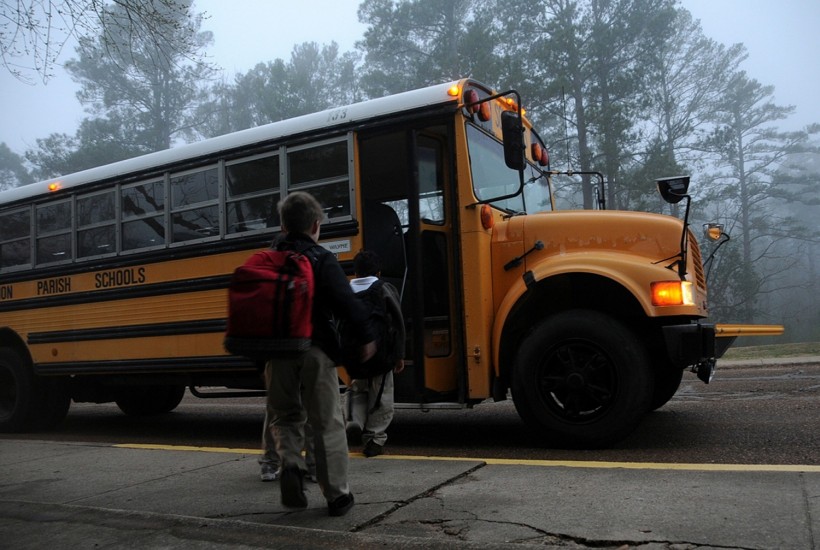
In the dynamic world of the 21st century, where technology and society are in constant flux, parents face new challenges in keeping their children safe. Europe, with its rich history and culture, has always found innovative ways to respond to the changing needs of its citizens.
Particularly, Germany, as the technological powerhouse of the continent, has made groundbreaking strides in harnessing GPS technology for child safety. This article delves into the evolution of child safety measures across Europe and highlights how Germany is leading the charge in protecting the next generation through cutting-edge technology.
Germany at the Forefront: Pioneering GPS Technology for Kids
Germany, with its rich history of innovation and technological advancement, has been at the forefront of integrating GPS technology for child safety. The country's commitment to the well-being of its youth is evident in its proactive approach to adopting and refining this technology.
While GPS technology was initially developed for military and navigational purposes, German tech companies quickly recognized its potential for personal use. As early as the 2000s, startups began experimenting with wearable GPS devices designed specifically for children.
Integration with Education: German schools have been instrumental in promoting the use of GPS trackers. Many institutions have collaborated with tech companies to provide students with GPS-enabled ID cards or wristbands, especially for younger children on school trips or daily commutes.
Public and Private Sector Collaboration: The German government, in partnership with private tech companies, has invested heavily in research and development to improve the accuracy, battery life, and user-friendliness of child-specific GPS devices. This collaboration has resulted in some of the most advanced and reliable trackers available on the market today.
Parental Feedback: German parents have been overwhelmingly supportive of GPS technology for their children. Many cite the peace of mind it offers, especially in urban areas with busy streets and public transportation. The ability to set 'safe zones' and receive alerts if a child leaves a designated area has been particularly popular.
Challenges and Criticisms: Like any technology, GPS trackers for kids are not without their critics in Germany. Concerns about privacy, data security, and the potential for over-reliance on technology at the expense of teaching children personal responsibility have been raised. However, with continuous improvements in technology and a balanced approach to its use, Germany continues to lead the way in ensuring child safety through GPS tracking.

The Evolution of Child Safety Measures in Europe
Historically, Europe has always been a continent that values the safety and well-being of its youngest citizens. From the early days of village communities where everyone looked out for each other's children, to the modern era with its advanced technological solutions, the approach to child safety has evolved considerably.
The Early Days: In the past, child safety in Europe was largely a communal effort. Children played in close-knit neighborhoods, and the concept of 'it takes a village to raise a child' was very much a lived reality. Parents relied on neighbors, friends, and extended family to keep an eye on their offspring.
The Industrial Revolution and Urbanization: As Europe underwent rapid industrialization and urbanization in the 19th and 20th centuries, the dynamics of child safety began to change. The migration of families to cities meant that many children were exposed to new dangers, such as traffic and unfamiliar urban environments. This led to the introduction of various safety measures, including the establishment of playgrounds, pedestrian zones, and school safety patrols.
The Digital Age: With the advent of the digital age, the threats to child safety have expanded beyond physical dangers. Cyberbullying, online predators, and exposure to inappropriate content became new challenges for parents. Europe responded with robust online safety campaigns, parental control software, and educational programs in schools.
Modern Technological Solutions: Today, with the proliferation of smartphones and wearable technology, GPS tracking has emerged as a leading solution for child safety. It offers parents real-time information about their child's whereabouts, ensuring peace of mind in an increasingly complex world.
Balancing Privacy and Protection: The German Perspective on GPS Trackers
In an era where data privacy has become a global concern, Germany stands out for its stringent data protection laws and its commitment to individual rights. When it comes to GPS trackers for children, the country faces the delicate task of balancing the undeniable benefits of these devices with potential privacy concerns.
The German perspective leans heavily on informed consent, ensuring that parents and guardians understand the implications of using such devices. While the primary goal is the safety of the child, it's equally important to ensure that the data collected remains secure and is used exclusively for its intended purpose.
Moreover, there's an ongoing debate in Germany about the age at which children should have a say in whether or not they're tracked, emphasizing the nation's dedication to individual rights from a young age. The consensus is clear: while GPS trackers offer invaluable peace of mind for parents, their use must always respect the privacy and autonomy of the child.
Case Studies: Real-Life Stories of GPS Trackers Making a Difference in Germany
The Lost Child at Oktoberfest: Every year, Munich's Oktoberfest attracts millions of visitors. Amidst the festivities, a young boy named Lukas was separated from his parents. Thanks to his GPS-enabled wristband, his frantic parents were able to locate him within minutes, preventing what could have been a prolonged and distressing search.
Daily Commutes in Berlin: In the bustling city of Berlin, many children use public transport to commute to school. For Lena, a 10-year-old who recently started traveling alone, her GPS tracker provides her mother with real-time updates on her journey, ensuring she arrives safely each day.
Hiking in the Black Forest: The Black Forest is a popular destination for families. During a family hike, teenager Sophie decided to explore a different trail. When she didn't return at the expected time, her parents used her GPS tracker to find her exact location, discovering she had twisted her ankle and couldn't walk back. The device not only provided her location but also allowed her to send a distress signal, ensuring timely help.
These stories underscore the tangible benefits of GPS trackers in various scenarios in Germany. While the technology is invaluable in emergencies, it also offers everyday comfort and assurance to parents and guardians across the country.
Comparing European Nations: How Germany Stands Out in Child Safety Tech
Across Europe, nations have embraced technology to enhance the safety of not only their youngest citizens but also their beloved pets. While countries like France prioritize digital literacy and the UK emphasizes online safety campaigns, Germany has carved a niche in pioneering child and pet safety tech, especially with GPS trackers.
The surge in popularity of GPS trackers for dogs in Germany mirrors the nation's commitment to safety and well-being across all aspects of daily life.
The rigorous German data protection laws ensure that technological advancements don't compromise the privacy of children or the data related to pets. Backed by strong governmental support, German tech companies lead in developing advanced GPS devices tailored for both children and pets.
Germany's holistic approach, which involves educators, tech experts, and policymakers, sets a gold standard in safety tech that many European nations aspire to emulate.
The Future of GPS Tracking: What's Next for Child Safety in Germany and Beyond
As technology continues to evolve, so will the methods and tools available for child safety. In Germany, the future of GPS tracking looks promising, with several advancements on the horizon. The integration of Artificial Intelligence (AI) with GPS devices is expected to provide more predictive capabilities, alerting parents to potential dangers before they occur.
Additionally, there's a growing trend towards creating multi-functional devices, where GPS trackers could also monitor a child's health metrics, such as heart rate or stress levels. Beyond the borders of Germany, the nation's innovations in child safety tech serve as an inspiration.
Collaborative European initiatives are underway to standardize and further enhance the safety features of GPS trackers, ensuring that children across the continent benefit from the latest technological advancements. As we look to the future, the fusion of technology and child safety will only grow stronger, with Germany continuing to lead the way.
* This is a contributed article and this content does not necessarily represent the views of techtimes.com





